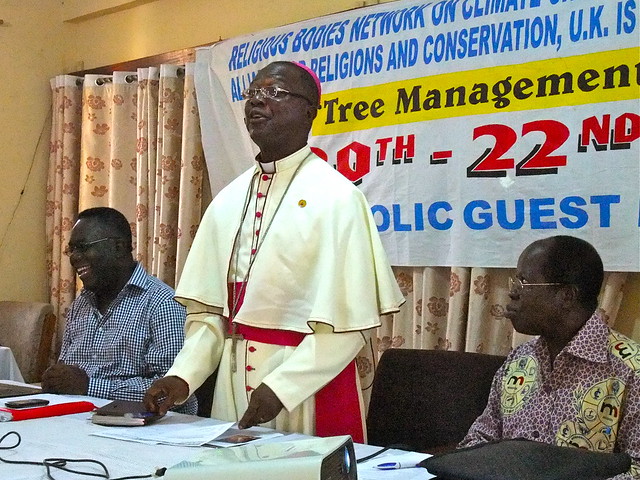The Presbyterian Church of Ghana is a Protestant church in Ghana founded by the Basel missionaries in 1828. The church is a founding member of the Christian Council of Ghana.
The Christian Council of Ghana (CCG) was founded on October 30, 1929 by five churches namely African Methodist Episcopal (AME), Zion Church, English Church Mission, Ewe Presbyterian Church now Evangelical Presbyterian Church; Presbyterian Church of the Gold Coast and Wesleyan Methodist Church now the Methodist Church Ghana.
Currently the CCG comprises fifteen member churches and two Christian Organizations. The CCG over the years has gone through a series of restructuring and renewal processes in an effort to develop a significant, effective and valuable organization responsive to challenges facing the Ghanaian member churches.

Health care organizations belonging to various Christian Non governmental groups or NGO's in Ghana provide for the majority of Ghana national health care needs. The umbrella organization of which the various mission hospitals, clinics and facilities are members of is known as the Christian Health Association of Ghana (CHAG).
Christian faith in Ghana is around Pentecostal and Charismatic 28.3 percent, Protestant 18.4 percent, Catholic 13.1 percent, other 11.4 percent, while Muslim 17.6 percent, traditional 5.2 percent, other 0.8 percent, and 5.2 percent profess no organized religion.
The Pentecost believes in baptism in the Holy Spirit, which God speaks to directly, speaking in tongues, prophecy, healing, and exorcism. Pentecostal name is taken from the event of Pentecost, when the Holy Spirit descended on Christ's first disciples and they were baptized in the Holy Spirit.
To Pentecostal’s and Charismatics speaking in tongues is when a believer speaks a language that they do not know and they are speaking to God and not men as referenced in 1 Corinthians 14:2 “For anyone who speaks in a tongue does not speak to people but to God. Indeed, no one understands them; they utter mysteries by the Spirit.”
Protestants are members of the Protestantism Christian religious movement that began in northern Europe in the early 16th century as a reaction to the Roman Catholic doctrine and practice of the edict of the Diet of Speyer which was a perceived force to choose between obedience to God and obedience to Caesar, Protestants choose obedience to God.
Together we build awareness that boost harmony, education, and success, below are more links to articles you will find thought provoking.
- Historical African country names
- Top 20 Largest Countries in Africa
- How many countries does Africa have?
- Paying Money To Tour Slums in Africa
- What Is the Wettest Country in Africa
- Land is Not For Women in Sierra Leone
- African Kente Cloth Facts
- Where is Shashamane Ethiopia the African Rastafarian Promised Land


























